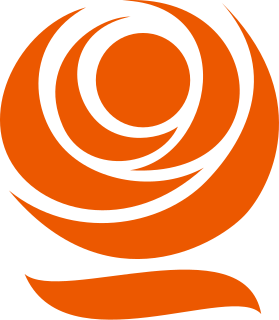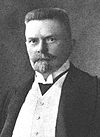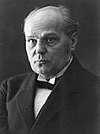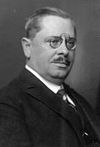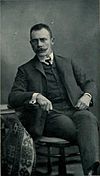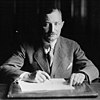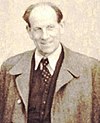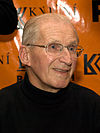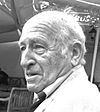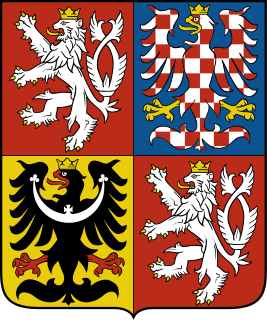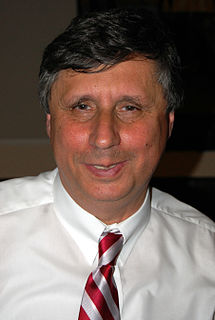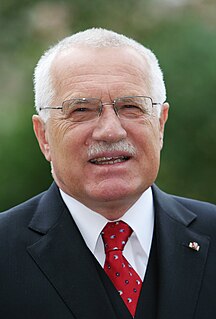| Prime Minister of Czechoslovakia | |
|---|---|
 | |
| Appointer | The President |
| Formation | 14 November 1918 |
| First holder | Karel Kramář |
| Final holder | Jan Stráský |
| Abolished | 31 December 1992 |
| Succession | |
The Prime Minister of Czechoslovakia was the head of government of Czechoslovakia, from the creation of the First Czechoslovak Republic in 1918 until the dissolution of the Czech and Slovak Federative Republic in 1992.
The head of government is either the highest or second highest official in the executive branch of a sovereign state, a federated state, or a self-governing colony, who often presides over a cabinet, a group of ministers or secretaries who lead executive departments. "Head of government" is often differentiated from "head of state", as they may be separate positions, individuals, or roles depending on the country.

Czechoslovakia, or Czecho-Slovakia, was a sovereign state in Central Europe that existed from October 1918, when it declared its independence from the Austro-Hungarian Empire, until its peaceful dissolution into the Czech Republic and Slovakia on 1 January 1993.
The creation of Czechoslovakia in 1918 was the culmination of the long struggle of the Czechs against their Austrian rulers and of the Slovaks against Hungarisation and their Hungarian rulers.
Contents
- Prime Ministers of Czechoslovakia (1918–1992)
- Czech and Slovak Federative Republic(1990–1992)Edit
- Czech Republic(1993–present)Edit
- References
- See also
In periods when the post of the President of Czechoslovakia was vacant, some presidential duties were carried out by the Prime Minister. However, the Czechoslovak Constitutions do not define anything like a post of acting president.
As of 2019 [update] , there are three living former Prime Ministers of Czechoslovakia: Lubomír Štrougal, Marián Čalfa and Jan Stráský.

Dr. Lubomír Štrougal is a former Czech politician and communist Czechoslovakia prime minister.
Marián Čalfa is the former Prime Minister of Czechoslovakia during and after the Velvet Revolution, as well as de facto acting President for 19 days, and was a key facilitator of the smooth transfer of power from Communist rule to a new democratic representation.
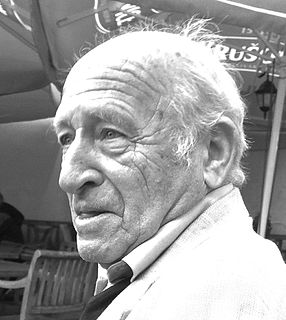
Jan Stráský is a Czech politician, who served as the last Prime Minister of Czechoslovakia in 1992.

